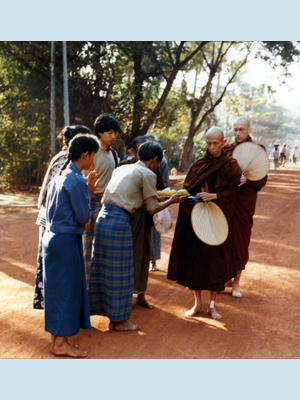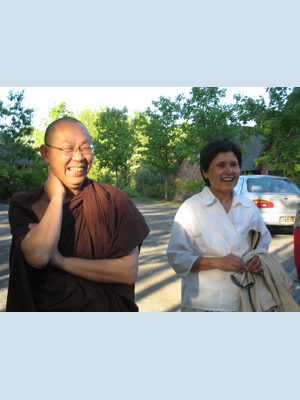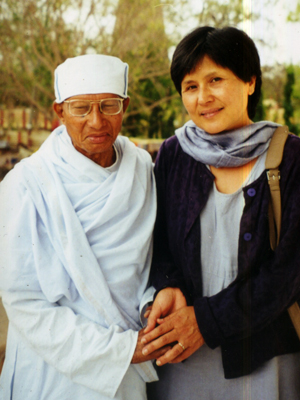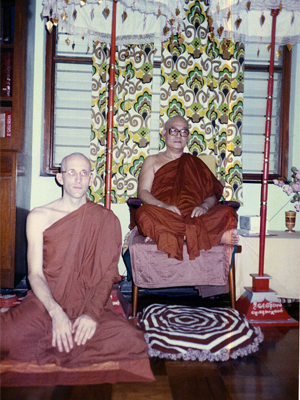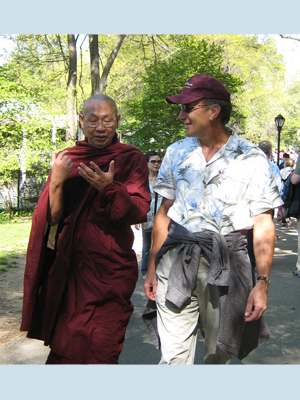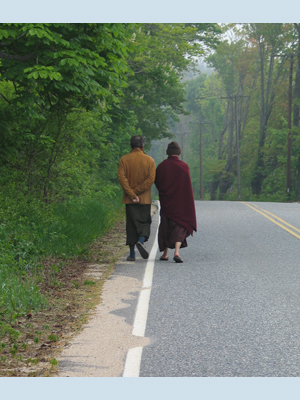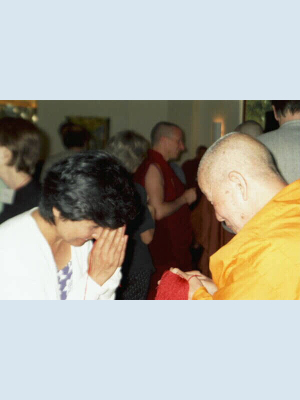Kamala and Steve are the founding and principal teachers of the Vipassana Metta Foundation. They have practiced primarily within the Theravada lineages of Burma as taught by Mahasi Sayadaw, Sayadaw U Pandita, Anagarika Munindra, Shwe Oo Min Sayadaw, Sayadaw U Tejaniya and Dipa Ma.
kamala
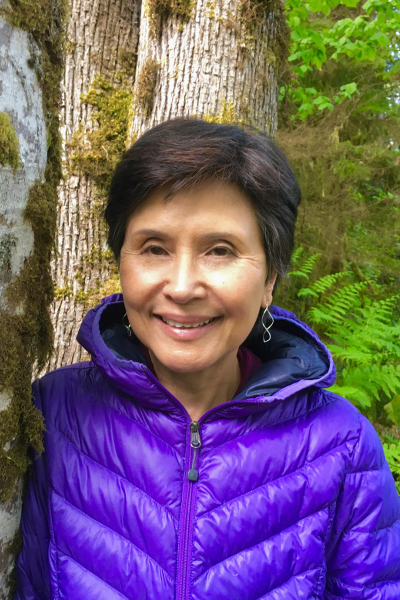
Kamala Masters is one of the founders and teachers of the Vipassana Metta Foundation on Maui. She teaches retreats in the Theravada tradition at venues worldwide, including being a Guiding Teacher at the Insight Meditation Society at Barre, Massachusetts. Practicing since 1975, her teachers have been the late Anagarika Munindra of India and the late Sayadaw U Pandita of Burma, and Sayadaw U Tejaniya of Burma with whom she continues to practice. Kamala has a commitment to carrying and offering the purity of the teachings of the Buddha in a way that touches our common sense and compassion as human beings, and allows the natural inner growth of wisdom. She lives on Maui where she raised four children, and is now blessed with seven grandchildren. Kamala practiced both insight and loving kindness meditations intensively under the guidance and preceptorship of Sayadaw U Pandita, in the USA, Australia and in Burma as a nun and a lay woman.
steve
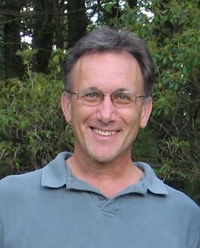
Steven Armstrong has studied the dhamma and practiced insight meditation since 1975. He served for many years at the Insight Meditation Society in Massachusetts as Executive Director, Board member and senior teacher of the annual three month retreat. As a monk in Burma for 5 years, under the guidance of the late Sayadaw U Pandita, he undertook intensive, silent practice of insight and lovingkindness meditations and in Australia, he studied the Buddhist psychology (abhidhamma) with Sayadaw U Zagara. He continues his practice under the guidance of Sayadaw U Tejaniya at the Shwe Oo Min Meditation Center in Rangoon. Steve is a co-founding teacher of the Vipassana Metta Foundation’s dharma sanctuary on Maui. He has been leading meditation retreats internationally since 1990, presenting the core teachings of the Buddha; and offering a variety of Buddhist mindfulness practices, encouraging cultivation of insightful awareness, and liberating understanding in all life activities. He encourages spiritual development of an unshakeable sense of well-being. On Maui he plants trees for a dhamma sanctuary and directs the Burma Schools Project building schools and clinics in Burma and supporting monastics and nuns.
our lineage






Dipa Ma (1911–1989) was born in Chittagong, East Bengal. She practiced meditation at the Thathana Yeiktha center, where the Venerable Mahasi Sayadaw (the most renowned monk, scholar, and meditation master in Burma at the time) was teacher-in-residence.In 1963, due to her impeccable morality and her powers of concentration, she was chosen to study the siddhis or spiritual powers with her teacher and relative, Anagarika Munindra, a senior student of Mahasi Sayadaw. Dipa Ma has been a great inspiration to women practitioners. She said, “Women can go more quickly and deeper in the practice of Vipassana than men because because your minds are more supple.”Dipa Ma was also not afraid to challenge the traditional Theravada doctrine that claims only men can be Buddhas. Her feminist stance, normally just an undercurrent, could sometimes surprise her students. Dipa Ma-The Life and Legacy of a Buddhist Master by Amy Schmidt

